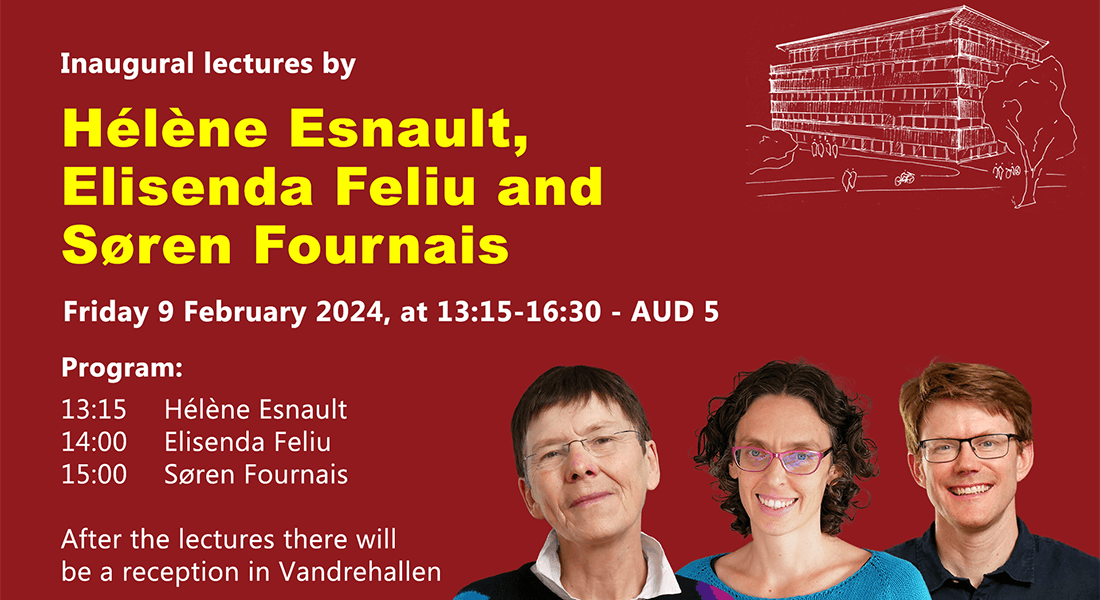Esnault, Feliu, Fournais - inaugural lectures

The department invites all to inaugural lectures by professors Hélène Esnault, Elisenda Feliu and Søren Fournais.
After the lectures, there will be a reception in Vandrehallen.
Program:
13.15-14.00 Hélène Esnault
14.00-14.45 Elisenda Feliu
15.00-15.45 Søren Fournais
16.00-16.30 Reception in Vandrehallen
Hélène Esnault:
Local Systems in Algebraic and Arithmetic Geometry
Abstract: We’ll survey in 30mns (+) some of the properties of complex local systems on complex varieties, stemming from Simpson’s broad conjectures, which ultimately have been proven using deep arithmetic properties.
Elisenda Feliu:
Signs and polynomials for reaction networks and beyond
Abstract: An approach to modeling the dynamics of (bio)chemical reaction networks is via the hypothesis of mass-action kinetics, which leads to systems of parametric polynomial differential equations. In this setting, equilibrium points are the (positive) solutions to a system of polynomial equations, which depends on unknown parameters. One of the questions I have focused on for the past many years is deciding whether the system admits at least two positive solutions for some parameter values (a property termed multistationarity), and if that is the case, to describe the parameter region where this occurs. These questions belong naturally to the fields of real algebraic geometry, semialgebraic geometry, and computational algebra, and related problems appear in other scenarios beyond reaction networks.
In the talk, I will briefly present the framework of reaction networks and the questions of interest. I will proceed to discuss some older and newer results to address the existence of multiple positive solutions for parametric polynomial systems, and I will illustrate how tools from polyhedral geometry and from the study of nonnegative polynomials became crucial to make the methods effective. Finally, I will present a new research direction in my group that reverses the flow of knowledge: the theory of multistationarity of reaction networks also leads to a new method to decide upon the nonnegativity of polynomials.
Søren Fournais:
On the energy of the dilute Bose gas
Abstract: The ground state energy density $e(\rho)$ of a large system of interacting bosons in $3$ dimensions at density $\rho$ satisfies the formula $$e(\rho) = 4 \pi \rho^2 a \Big( 1 + \frac{15}{128 \sqrt{\pi}} \sqrt{\rho a^3} \Big) + \text{higher order terms}, $$ in the dilute limit $\rho a^3 \ll 1$. Here $a$ is the scattering length of the interaction potential. This is the celebrated Lee-Huang-Yang formula for the energy density.
Understanding the energy to this precision requires a detailed understanding of correlations between the particles. Therefore, and because of the link between such energy questions and the property of Bose-Einstein Condensation of dilute gases of bosonic particles, proving such formulas for the energy density has been an area of intense activity in the mathematical physics community in recent years.
In this talk, I will review parts of the proof (joint with Jan Philip Solovej) of the Lee-Huang-Yang formula for the energy. I will also comment on the harder $2$-dimensional case and how the proof can be modified to accommodate this case.
